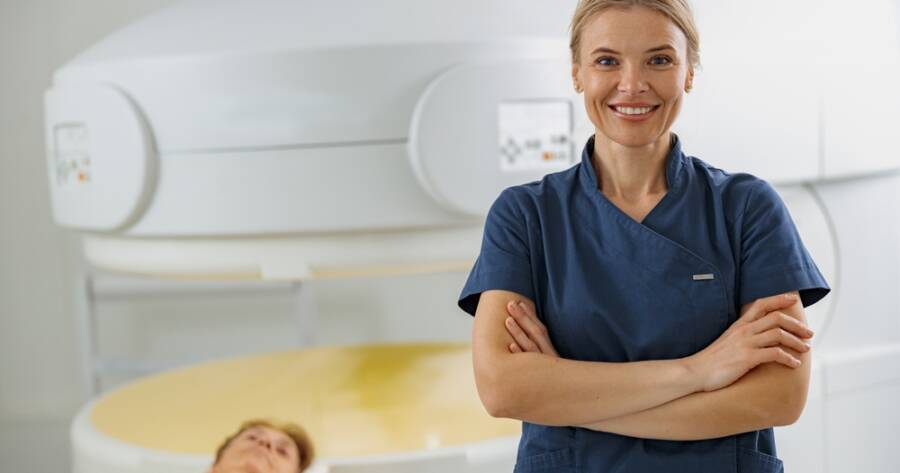MRI technologist training is crucial for individuals looking to enter a burgeoning field within medical diagnostics. With promising job growth and diverse educational pathways, aspiring MRI technologists can benefit from structured programs that combine hands-on experience with academic learning. Gaining certification ensures professional credibility and opens doors to advanced career opportunities in healthcare.
Understanding MRI Technologist Training
Magnetic Resonance Imaging (MRI) technology has emerged as a critical pillar in the realm of medical diagnostics. MRI technologists operate sophisticated MRI scanners to produce detailed images of internal body structures, assisting in accurate diagnoses and effective treatment regimens. This profession offers a promising career trajectory with the projected job growth rate of 6% through 2031, underscoring its relevance in the healthcare domain.
Pathways to Becoming an MRI Technologist
The journey to becoming an MRI technologist can begin in various contexts. Aspiring professionals might start from other modalities such as radiologic technology or nuclear medicine, possibly leveraging programs like the UPMC MRI Certificate Program, designed for professionals aiming to enhance their skills in medical imaging through additional qualifications.
Alternatively, direct educational routes involving certifications like ARRT® or ARMRIT offer structured pathways. Certification not only offers professional credibility and potential earnings benefits but also guarantees competence in performing imaging services.
Structured MRI Training Programs
Several educational institutions provide formal training geared towards individuals intending to specialize as MRI technologists. For instance, the College of DuPage offers a comprehensive 12-month MRI Technology Program that integrates classroom instruction with hands-on experience to prepare students for real-world applications in medical imaging.
Similarly, Smith Chason College offers a nine-month qualification certificate program which incorporates hybrid learning models, including online lectures and in-person labs, to reinforce practical knowledge. The inclusion of a three-month externship ensures that students receive the immersive experiences necessary for professional practice through hands-on training.
Program Specifics and Expectations
While the specifics of MRI technologist programs vary, they universally emphasize foundational knowledge and practical application. Programs typically entail coursework in MRI principles, anatomy, and patient care, coupled with significant clinical exposure through internships. For instance, the UPMC program requires completion of 576 clinical hours and includes courses like the ASRT MRI Basics Program, helping students to meet the American Registry of Radiologic Technologists (ARRT) requirements for certification.
In addition to practical training, many programs provide options for tuition reimbursement plans upon commitment to post-graduation employment within certain healthcare facilities, such as UPMC’s two-year tenure obligation, which can greatly alleviate the financial burden associated with educational expenses by offering tuition forgiveness.
Licensing and Certification for MRI Professionals
Obtaining certification and licensure is pivotal for MRI technologists. While licensure requirements differ by state, approximately 75% of states mandate formal licensing. Requisite steps include fulfilling educational prerequisites, passing exams, and meeting state-specific standards.
Certification from recognized bodies like ARRT also plays a crucial role in ensuring professional competency and career advancement opportunities. Additional certifications from organizations like the American Board of Magnetic Resonance Safety can further enhance prospects and specialized roles within the field.
Why You Should Learn More About MRI Technologist Training Today
Given the evolving landscape of healthcare, the role of MRI technologists continues to grow in importance. The convergence of technological advancement and healthcare demand highlights the necessity for well-trained MRI professionals. As programs across various institutions continue to adapt and update their curricula to incorporate newer technologies and methodologies, individuals aspiring to enter this field will find themselves at the forefront of medical innovation.
Engaging with comprehensive MRI technologist training not only prepares candidates for immediate employment in diverse healthcare settings but also ensures the continuous provision of quality patient care and advanced medical diagnostics. Pursuing this career path offers personal fulfillment and professional growth opportunities, making it a worthy consideration for those with an interest in medical imaging.

